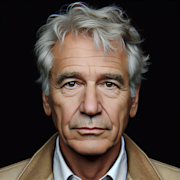Downfall (2004)

In 2004, director Oliver Hirschbiegel released the historical drama film Downfall, depicting the final days of Adolf Hitler’s rule over Nazi Germany during World War II. The film has garnered critical acclaim for its raw portrayal of the collapse of the Third Reich and the psychological mindset of its leader in his final hours. Let’s delve deeper into the impact and significance of Downfall.
Historical Context
Downfall is based on the memoirs of Traudl Junge, Hitler’s personal secretary, providing a unique perspective on the events leading up to the fall of Berlin in 1945. The film offers a glimpse into the paranoid and delusional world of Hitler as the Soviet army closes in on the German capital, showcasing the desperation and madness that consumed the Führer and his inner circle.
Portrayal of Characters
One of the most notable aspects of Downfall is its portrayal of the characters surrounding Hitler, from loyal followers like Joseph Goebbels to disillusioned figures like Hermann Fegelein. Bruno Ganz’s performance as Hitler has been praised for its nuanced depiction of a man teetering on the brink of madness, humanizing a figure often seen as a monster in history.
Cinematic Achievement
The film’s use of claustrophobic settings and intense close-ups adds to the sense of impending doom that pervades Downfall. The bunker where Hitler and his followers make their last stand becomes a pressure cooker of emotions, highlighting the tension and fear gripping the occupants as the end draws near. Hirschbiegel’s direction and the cinematography by Rainer Klausmann capture the grim atmosphere of the closing days of World War II with unsettling precision.
Controversy and Criticism
Downfall has not been without its share of controversy, particularly regarding its portrayal of Hitler as a human being rather than a one-dimensional villain. Some critics have argued that humanizing such a figure can be dangerous, as it may lead to a sympathetic view of a man responsible for countless atrocities. However, supporters of the film maintain that it provides a valuable insight into the psychology of tyranny and the dangers of unchecked power.
Legacy and Influence
Despite the debates surrounding its portrayal of Hitler, Downfall has left a lasting impact on audiences and filmmakers alike. The film has been the subject of numerous parodies and memes, with one infamous scene featuring Hitler’s outburst in the bunker becoming a popular template for internet culture. Moreover, the film has inspired a new wave of historical dramas that seek to explore the complexities of infamous figures and events in a more nuanced light.
In conclusion, Downfall stands as a powerful and thought-provoking examination of the final days of Adolf Hitler and his regime. By delving into the minds of those who witnessed the collapse of the Third Reich, the film offers a stark reminder of the consequences of unchecked power and the dangers of embracing destructive ideologies. Its impact on popular culture and the enduring discussions it has sparked attest to the enduring relevance of its message.

Desmond van der Walt
Journalist
More From Classics Authority Movies

Movie
Cinematic Parallels: Classic Films with Intriguing Similarities

Movie
Classic Spy Movies: Intrigue, Espionage, and High-Stakes Action

Movie
The English Patient (1996)

Movie
Cinematic Heists: Classic Movies that Mastered the Art of the Caper

Movie
Manhattan (1979)

Movie
Lost in Translation: Classic Films That Transcend Language Barriers





